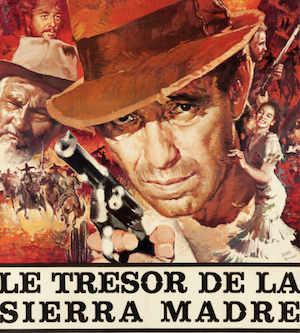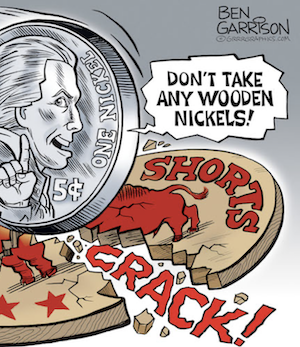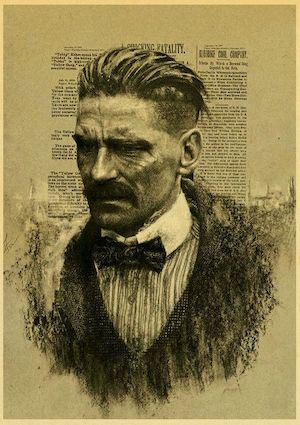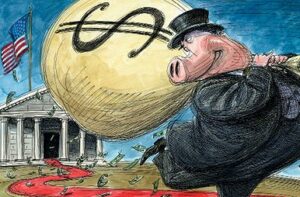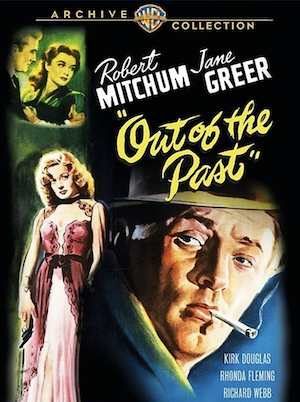ART. XIII. -HISTORICAL SKETCH OF PAPER CURRENCY
Hon. C. Gayarre, pp. 77-87, 1866
INVENTION OF PAPER MONEY- FRENCH EXPERIENCE – JOHN LAW ENGLISH EXPERIMENTS – COLONIAL – RUSSIAN – CONFEDERATE STATES – OUR NATIONAL CURRENCY.
This article, which has been for sometime upon our table, has been amended in a few particulars by the author, and slightly enlarged. It is an interesting discussion of the paper money question from the pen of one of the leading literary and practical men of the South; the author of the “History of Louisiana,” and other valuable works. – Editor.
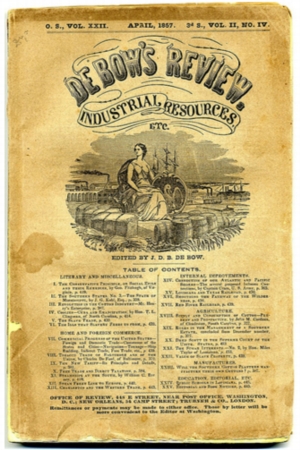 In the latter months of the year 1863, only two years after the beginning of the great struggle which has lately terminated, and long before there was any doubt, in the Southern Confederacy, of its final success, its paper currency had depreciated to an extent which made it almost valueless. This was looked upon as the natural and inevitable consequence of its excessive redundancy, but that redundancy was not the only reason of its depreciation, because it would have depreciated without it, although to a much less degree. We believe it may be laid down as an almost settled axiom, without much fear of any successful refutation, that depreciation is of the very essence of paper money, whether it exceeds or not the wants of the community where it is current-that its over-issue only accelerates, or increases the depreciation-and that the depreciation becomes still more rapid and fatal when that paper, either by the action of Government, or from the no less powerful dictates of circumstances becomes a forced currency.
In the latter months of the year 1863, only two years after the beginning of the great struggle which has lately terminated, and long before there was any doubt, in the Southern Confederacy, of its final success, its paper currency had depreciated to an extent which made it almost valueless. This was looked upon as the natural and inevitable consequence of its excessive redundancy, but that redundancy was not the only reason of its depreciation, because it would have depreciated without it, although to a much less degree. We believe it may be laid down as an almost settled axiom, without much fear of any successful refutation, that depreciation is of the very essence of paper money, whether it exceeds or not the wants of the community where it is current-that its over-issue only accelerates, or increases the depreciation-and that the depreciation becomes still more rapid and fatal when that paper, either by the action of Government, or from the no less powerful dictates of circumstances becomes a forced currency.
Before proceeding further, let us, on the threshold of this disquisition, determine what we are to understand, strictly speaking, by paper currency. We wish it therefore to be kept in mind that we mean by paper currency all notes or obligations which are intended as a substitute for coin, and which are not redeemable on presentation in metallic currency, to the full amount of the promise to pay contained in those notes or obligations. Otherwise-that is, when it can be converted at will into gold or silver, or is believed to be thus convertible-it does not circulate as paper currency, but merely as the convenient and useful representative of metallic currency, over which it possesses a decided advantage for transportation and for other purposes of trade; and so long as this is the case it does not depreciate.
Although paper currency is a modern invention, the teachings of history in relation to its effects are sufficiently numerous and sufficiently instructive, if not to cause it to be altogether rejected by the rulers of nations, at least to inform them how to guard, as much as possible, against its evils, when it is once resorted to, if man could be kept from the commission of well-known errors by the warning examples of his predecessors.
We believe that we are correct in asserting that paper currency is an invention of the eighteenth century, and that all those nations which, since its invention, have had recourse to that fatal panacea, did not, in the end, have any reason to congratulate themselves upon the experiment.
The temptation, however, to create in pressing exigencies, by so simple an operation as that of a printing press, an abundance of fictitious wealth in substitution of the precious metals, is too overpowering to be resisted by modern statesmen. The only hope is that it is a resource which will be rarely used, on account of its dangerous consequences, and that when used, it shall be with the necessary precautions; although from the knowledge of the past, and the spectacle offered by the present, we are not justified in expecting much from the future. Great national wars have generally been the pretext for the emission of paper currency on a large scale, as a matter of course; and so much so, that in such contingencies it seems to be the first measure which, from its seductive facility, presents itself to the mind. It ought not, however, to be forgotten that the seven years’ war of single-handed Prussia, under Frederic the Great, against the combined forces of France, Austria and Russia, in the last century, is a magnificent proof that a long struggle for national existence can be successfully maintained without having recourse to paper currency. It is true that, as Macaulay says, “The King carried on war as no European power has carried on war, except the Committee of Public Safety during the great agony of the French Revolution.” Prussia, which had been devastated in every one of its provinces by uncivilized hordes of Croatians, Cossacks, and other barbarians, had been converted almost into a howling wilderness; but, adds the historian: “One consolatory circum- stance, indeed, there was; no debt had been incurred. The burdens of war had been terrible, almost insupportable; but no arrear was left to embarrass the finances.” We all know how soon Prussia, free from debt, recovered from so many wounds which seemed mortal, and how those meager domains which so recently enjoyed no prouder name than that of Marquisate of Brandebury, assumed an importance and a rank equal to those of the most powerful kingdoms of Europe. We admit, however, that such an example is not easy of imitation, although it shows for the instruction of the world what the genius of one man and the endurance of a nation can accomplish without “issuing bonds,” and without manufacturing a paper currency, which inevitably leads to demoralization, repudiation, bankruptcy, and national disgrace.
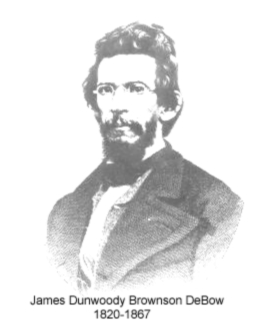 We have said that the genealogy of paper currency can hardly be traced up further back than the beginning of the eighteenth century. For the first time, we believe, ill 1702, a paper money was created in France, which was to be withdrawn on the 1st of April, 1705, bearing in the meanwhile the enormous interest of 7i per cent. per annum. It was received by the public with great favor, and circulated at par. But on the 1st of April, 1705, the paper could not be redeemed, as promised, and in order to induce the holders to consent to its renewal without too importunate clamors of discontent, the Government added 2 per cent. to the original interest, making 91 per cent. Notwithstanding this encouragement, this tempting bait-notwithstanding this sop thrown to the fears of the multitude, the currency lost in a few days as much as 75 per cent. In 1706, by a decree of the Government, it was made a legal tender, and thus became a forced currency, under the penalty of pillory, exile, and a fine of three thousand livres. But, strange as it may appear to those among us who favor measures of this description, from that moment the currency became valueless, so much so, that the Government paid one-fourth of it in coin, on condition that the rest should be converted into treasury notes-which conversion was followed by other conversions, until at last the Government emitted notes bearing an interest of 20 per cent., but without succeeding in stopping the increasing depreciation of every paper currency that was issued in rapid succession. Merchants asked their customers in what currency the goods desired were to be paid for, and had one price for those who offered to pay in gold or silver, and another price for those who tendered paper; and frequently to those of this latter denomination they pretended that they had no goods at all on hand. The peasantry of France refused also to take it, as many of the Southern farmers refused to take Confederate currency. A maximum rate having been decreed, at which the French peasants were compelled to sell the produce of their labors, many ceased to work their lands. This circumstance, combined with the effects of an unusually rigorous winter, produced such a famine in 1709, that, even in Paris, only coarse brown bread was used for several months; that in the very palace of Versailles, the seat of so much splendor, several families fed on bread made of oatmeal. and that the celebrated Madam de Maintenon, the avowed confidential friend and the secret spouse of one of the most magnificent monarchs of the world, gave the example of abstemious frugality by partaking of this rude diet. The price of wheat flour had gone up to 120 livres the sack, but the Government having found out the means of reducing the amount of the paper currency afloat, flour suddenly fell down to 40 livres. It would be profitable and instructive to examine separately and in detail the curious devices to which financiering ingenuity resorted in those days, but this could not be done here without exceeding the bounds which we have prescribed to this article.
We have said that the genealogy of paper currency can hardly be traced up further back than the beginning of the eighteenth century. For the first time, we believe, ill 1702, a paper money was created in France, which was to be withdrawn on the 1st of April, 1705, bearing in the meanwhile the enormous interest of 7i per cent. per annum. It was received by the public with great favor, and circulated at par. But on the 1st of April, 1705, the paper could not be redeemed, as promised, and in order to induce the holders to consent to its renewal without too importunate clamors of discontent, the Government added 2 per cent. to the original interest, making 91 per cent. Notwithstanding this encouragement, this tempting bait-notwithstanding this sop thrown to the fears of the multitude, the currency lost in a few days as much as 75 per cent. In 1706, by a decree of the Government, it was made a legal tender, and thus became a forced currency, under the penalty of pillory, exile, and a fine of three thousand livres. But, strange as it may appear to those among us who favor measures of this description, from that moment the currency became valueless, so much so, that the Government paid one-fourth of it in coin, on condition that the rest should be converted into treasury notes-which conversion was followed by other conversions, until at last the Government emitted notes bearing an interest of 20 per cent., but without succeeding in stopping the increasing depreciation of every paper currency that was issued in rapid succession. Merchants asked their customers in what currency the goods desired were to be paid for, and had one price for those who offered to pay in gold or silver, and another price for those who tendered paper; and frequently to those of this latter denomination they pretended that they had no goods at all on hand. The peasantry of France refused also to take it, as many of the Southern farmers refused to take Confederate currency. A maximum rate having been decreed, at which the French peasants were compelled to sell the produce of their labors, many ceased to work their lands. This circumstance, combined with the effects of an unusually rigorous winter, produced such a famine in 1709, that, even in Paris, only coarse brown bread was used for several months; that in the very palace of Versailles, the seat of so much splendor, several families fed on bread made of oatmeal. and that the celebrated Madam de Maintenon, the avowed confidential friend and the secret spouse of one of the most magnificent monarchs of the world, gave the example of abstemious frugality by partaking of this rude diet. The price of wheat flour had gone up to 120 livres the sack, but the Government having found out the means of reducing the amount of the paper currency afloat, flour suddenly fell down to 40 livres. It would be profitable and instructive to examine separately and in detail the curious devices to which financiering ingenuity resorted in those days, but this could not be done here without exceeding the bounds which we have prescribed to this article.
Soon after, under the regency of the Duke of Orleans, followed the introduction of the famous’ scheme, invented by John Law, to absorb the paper currency which had been emitted with so little success in the preceding reign, to relieve the other necessities of the State and supply the scarcity of the precious metals. That wonderfully skillful adventurer had first attempted to try his great financial experiment in Holland, but had found an insurmountable obstacle in the cold phlegmatic temperament of the Dutch, whom he could not dazzle into the adoption of his magical discovery of assimilating paper to gold and silver. Then, in 1705, he had, under the patronage of some of the highest magnates of Scotland, whom the plausibility of his plans had fascinated, presented to the Parliament of that kingdom a scheme for removing the difficulties resulting from the scarcity of coin and from the stoppage of payments by its national bank; and in illustration of his views on that subject, he gave publicity to a work entitled: “Money and trade considered, with a proposal to supply the nation with money.” What could be more tempting?
The proposal of Law was that commissioners, appointed in the manner provided for by Parliament, and remaining under the control of that body, should be empowered to issue notes, either in the way of loan at ordinary interest upon land mortgages, provided the loan should not exceed half; or at most two-thirds of the value of the land; or upon land pledges redeemable within a certain period of time, to the full value of the land; or, lastly, upon sale, irredeemably, to the amount of the price agreed upon. The most timid, as he conceived, could not object to this kind of paper money on the ground of its being deficient in safe guarantees, and he maintained that it would constitute a currency equal in value to gold and silver coin, to which it might even be preferred for reasons which he enumerated in his work. Thus a piece of land would not only be a farm answering all the purposes for which it was originally destined, but also, according to its value, so much capital thrown into circulation. The wealth of the kingdom would evidently be doubled, argued Law, and an incalculable impulse given to industry and enterprise of every sort. By this ingenious operation a double source of profit was to be secured to Scotland, the one proceeding from the agricultural produce of her soil, and the other from the employment of so much capital as that soil represented. But this scheme, though presented to a needy public in a glowing style, and with arguments elaborate with exquisite art, and though powerfully supported by the court party, and by the influence of such men as the Duke of Argyle and others of high, social position, was rejected by the Parliament on the ground that, ” to establish any kind of paper credit, so as to oblige it to pass as currency, was an improper expedient for the nation.” This conclusion was worthy of the proverbial sagacity, prudence and integrity of the Scottish people. That a government should change its metallic currency into printed notes or promises to pay, and compel its citizens, who had loaned certain sums in gold and silver, to receive in reimbursement, the same amount in depreciated or worthless paper money, may, not without some appearance of reason, have appeared, to the Puritanic but brave and loyal descendants of Wallace and Bruce, a somewhat doubtful question of morality and policy. They also apprehended that if Law’s plan were adopted, all the real estate in the kingdom would thereby be brought to a complete dependence upon the bank proposed by him, and collaterally upon the Government, as the bank itself was dependent on the Government.
It is useless to add that the wisdom of England and her knowledge of the laws of trade and the exigencies of public credit prevented her from listening to the proposals of Law. But, nothing abashed by these repulses, Law, after the fashion of Columbus searching for a sovereign into whose lap he should be permitted to shower the treasures of America, wandered about in quest of some Power who would accept the El Dorado which teemed in his brains. In his peregrinations he repaired to the Court of Turin, and addressed the reigning prince, Victor Amadeus, on the financial conceptions which he thought had been so unwisely rejected: but that prudent sovereign shrewdly and quaintly answered, “I am not rich enough to afford being ruined.”
This short historical sketch shows the instinctive aversion entertained in Europe for paper currency, when it made its first appearance at the beginning of the eighteenth century. It is evident that the dangers of such an innovation were as apparent then as they are now, although not actually demonstrated by experience as they have been since. It was impossible to be oblivious of the fact that, for ages, great nations had existed, with great military and commercial wants, as great comparatively as in modern times, and that they had met those wants without any paper currency, or anything like it. Why depart from the line of safe precedents? said the enemies of the new system. Coins, it must be admitted, had frequently been debased by governments as a momentary resource, but always with fatal effects; and the policy of paper money was certainly, they thought, as questionable as that of adulterating coin for temporary purposes. It is possible, however, that paper currency might have been distinguished as an earlier invention if the press had been sooner known, or if, shortly after it was known, it had worked with as much marvelous rapidity as in our days.
Is was at a time when the wise heads of France could not see their way through the embarrassments of the national treasury, that John Law came forward with his panacea, which was to liquidate the debt of the State, to increase its revenue, and at the same time diminish taxation. All these prodigies were to be suddenly produced by the easiest process in the world-the creation of a paper currency-which, representing all the commercial, agricultural and other sources of the kingdom pledged to its ultimate redemption, would add another currency to the one already existing-another currency equally as good and solid as that metallic currency which was no longer adequate to the increasing wants of the nation. The Regent, who was incessantly craving for money, and who had an imagination naturally and easily captivated by specious schemes and attractive novelties, eagerly jumped at the conclusions of Law, and granted him all the required facilities to carry into practical operation his new system of finances. With wonderful celerity the adventurer soon created the most stupendous financial fabric ever presented to the world! All the national property and all the revenues whatever of one of the most powerful kingdoms of Europe, and the profits to be derived from extraordinary monopolies and from other sources which it is useless to enumerate, were wedged together into a unit, and that unit made responsible for the security of the new circulating medium to be introduced into that country! Could any currency be better than that which rested on such foundations? exclaimed the advocates of Law. And yet what were the results? The year 1720 saw his financial system expanding like a gigantic mushroom, embellished with hues as bright and dazzling as might emanate from a huge mountain of pure and solid gold, under the rays of a tropical sun. But we all know that in one day, as it were, it withered away, leaving desolation brooding on ruin, where before all was hope and joy.
Then happened what has but too frequently been seen since: the superabundance of paper money produced a great scarcity of coin. It became evident to the most obtuse, or to the most sanguine, that this prolific paper currency had not a sufficient representative for its redemption, and that before long it would be no more cared for than worthless rags. As soon as that discovery was made; as soon as it was ascertained that public credit was dead, and that the vast paper currency was nothing but a fit shroud for its corpse, every one hastened to convert the notes he had into gold or silver, and to realize the fortune he had acquired by stock jobbing or speculation. We see the same process now going on among us. The most keen sighted, or the most prudent, not only exchanged their notes for specie, but sent it out of France, as speculators lately did in the Confederate States, and it is calculated that in this way the kingdom was drained of five hundred millions of livres!
To avert the danger, the Government, in less than eight months promulgated thirty-three edicts to tax the value of gold and silver, to preserve and to increase the metallic currency, and to limit the amount of gold and silver which might be converted into plate and jewelry. No payment in specie could be made except for small sums —that is to say: paper became a legal tender and discharged debts-exactly what our legislators have thought would be a remedy to the depreciation of our own paper. Nay, more —the standard of coin was purposely, by royal decrees, kept in the most bewildering state of fluctuation, while the value of the notes was decreed to be invariable. It was expected that, the value of gold and silver coin being thus made so uncertain, there would be a strong inducement to convert them into notes bearing interest and decreed invariable in their value. But this expectation was not realized. The next contrivance was to make rents, taxes and custom-house duties payable only in paper; but this failed again to answer the purpose. As al climax to these high-handed measures, individuals, as well as secular and religious communities, were prohibited under very severe penalties from having in their possession more than five hundred livres in specie, or about $100. This royal ordinance established the most intolerable inquisition, and gave rise to the most vexatious researches on the part of the police. The house of no citizen was free from the visits of the agents of power; every man trembled to see denunciation lurking by his fireside, and to harbor treachery by the very altars of his household gods. But this also failed.
The depreciation of the paper currency continued to be so rapid, and the alarm of the public became such, that it was thought necessary at least to reduce considerably the disproportion between the coin supposed to be in the kingdom and what we shall call, for a better understanding of the case, the treasury notes of the Government, Thus, on the 21st of May, 1720, an edict was issued, which, in violation of the pledge of the State and the most solemn stipulations, and as a beginning of bankruptcy, cut down to one-half the whole paper currency-a measure which was advocated in the late Southern Confederacy, to make good the rest of their notes. The holders of the notes, it was said, would have no legitimate right to complain, since their one-half would be equal in value to the whole, and since they would purchase all they needed for half of the price which they were paying. Besides, it was better to lose one-half than the whole. Such compromises constantly took place in ordinary transactions between individuals; and after all, it had become a matter of necessity, to save the Government. Such was the self deceiving logic of ignorance; such was the flimsy sophistry of dishonesty. What was the consequence? It was instantaneous and overwhelming. At once all confidence was lost in the notes, general consternation prevailed, and no one would have given twenty cents in hard coin for millions of the paper currency, which was suddenly reduced to zero by that very measure which was intended to save it.
Any one studying the financial part of the history of the regency of the Duke of Orleans, would cease to tax his brains in the vain hope to discover anything new to bolster up a decaying paper currency; he must content himself to imitate, in consequence of not being able to invent. But is it not reasonable to suppose that, as the original conceptions which he would borrow, backed as they were by despotic power, proved invariably abortive, his imitation, however ingenious, would not be more successful?
Hardly more than one-half of a century had elapsed since the memorable explosion of this financial experiment, when France returned to the same expedient with the same imprudent confidence as before, and in her hours of distress took again to her lips the same poisonous cup which had been once so fatal to her national honor and prosperity. It was at the beginning of the mighty revolution which was to bring to the scaffold her time-honored monarchy and convulse Europe, that the introduction of paper money was vehemently advocated on that most convenient and most unanswerable of all pleas-the plea of necessity. Reasons were given with all the charms of eloquence why the system of Law had been disastrous, and why the new one could not fail of success. The errors of the past would serve only as beacons to guide, and not to mislead; the age had become more enlightened, and an improved machinery could accomplish what it had not done in its original state of imperfection. What capitalist had, in his private business, ever refused to take a promissory note when guaranteed to his satisfaction? and had not France better guaranties to give than individuals! Who could object, for instance, to take the treasury notes of France, which should be exchangeable at will, and without delay, for fertile fields, productive forests, rich mines of all kinds, splendid palaces, multitudinous residences in cities, towns and villages, or in the country, all registered in a book open to inspection, and to be procured on a ratio of appraisement falling much below their real value! Were not, in addition, all the resources and the chivalrous faith of France-pledged for the redemption of those notes? Such was the basis on which the famous assignats were issued. The subject was thoroughly discussed and exhausted by the highest intellects of France, by such men as Mirabeau, l’Abb6 Maury, Talleyrand, and a host of other distinguished personages of great merit, although of less fame. Nothing can be added to their luminous expositions of the advantages, or disadvantages, of paper currency, and of the means to be employed to make it an engine of production, if possible, and not of destruction. Afirabeau, who had always been opposed to such financial operations, pretended to have changed his views, and advocated the assignats on the ground of the novel and undoubted security which they offered to the public, and, as a last resort, invoked the plea of necessity, as it usually happens when it is desired to justify the unjustifiable. On the other side, Talleyrand and the celebrated Abbe Maury predicted that the remedy would turn out to be a noxious drug, by which the patient would be killed. Posterity now knows that they were right.
But it was said to them, as it is said on all occasions when the emission of paper money is opposed: granting that your objections are correct, what substitute do you offer? I will quote Abbe Maury’s answer, in substance, if not in the very words he used: “I have,” he said, “demonstrated to you beyond refutation, that paper money is a hyena that will devour us all. This is a sufficient reason for not admitting the wild beast among you. Only declare by a recorded vote that you reject, now and forever, the idea of having recourse to paper money, and there will be no lack of men who will come out with financial plans that will be sufficient to the wants of France. I, for one, have on hand one of those plans. But what will be the use of offering to you hard-fisted measures which will task your honesty, your patriotism and your powers of endurance, when you are determined to yield to the blandishments of paper money, and to take the road to perdition, because, at its entrance, it is smooth and easy, whilst that to salvation is rugged and toilsome?” Such language and such vaccinations were not listened to, and the printing presses of the French Government soon became, in the manufacturing of paper money, as active and prolific as those of the two parties engaged in the tremendous war through which we have lately passed. We all know what was the fate of the assignats.
If there ever was a paper money which should have answered its purposes without depreciation, it is that which was introduced in Pennsylvania in 1720, with such precautions and guaranties as ought to have dissipated the alarms of the most timid. The commerce of Philadelphia was then suffering greatly from the want of specie, or of a proper medium of exchange, and paper money was resorted to within very limited bounds-the issue never exceeding sixty-seven thousand pounds. The Provincial -Government became the lender of that money. Nobody could borrow of it more than one hundred pounds, nor could obtain it without a mortgage on real estate worth double the value of the sum borrowed, excluding from the estimate the value of the buildings. The borrower was to pay the interest under the penalty of eviction. The capital was to be reimbursed in seven equal installments; and on the return of the paper into the Provincial treasury it was to be burned. In addition to these securities resting on the private wealth of individuals, all the resources of the Province were pledged for the redemption of the paper. Could there be any better guaranties? At first the system worked very – well; but in a short time the change between Philadelphia and London, which was at one hundred and thirty-three when the paper was emitted, rose gradually to one hundred and eighty. The paper itself went on depreciating to sixty per cent., until it was converted into Continental money in} 1778. A glance at Bancroft’s History of the United States, page 380, vol. iii., will show the fate of every other colonial paper. As to Continental money we shall say nothing, its history being but too well known.
Russia had also a paper currency about the same time, and in 1790 that paper was losing thirty-three per-cent. in St. Petersburg, and much more in the provinces. In fact, as we have already said in the beginning of this article, there never was in any country, except with one trifling exception, a paper money which did not depreciate considerably. Bank notes, when they circulate at par, can not be classed among paper currencies; they are the mere representatives of the gold and silver which can be had for them on presentation. But we know what becomes of them as soon as they cease to be the representatives of the precious metals, or as soon as there are any apprehensions on the subject. Even the notes of the Bank of England, the strongest institution of the kind in the world, and to which the very strength and life of the Government of Great Britain has been imparted, never failed to depreciate whenever it suspended specie payment, although done at the request of the Government, for national ad patriotic purposes. In 1814, those notes were losing twenty-five per cent., and there is no telling what would have been their further depreciation, if a coalition of the whole of Europe against Napoleon had not restored to England the peace which she so much needed.
The only paper currency which did not depreciate, and to which we have already alluded, is that which was guarantied by deposits of tobacco in public warehouses in Virginia and Maryland. There is certainly something very suggestive in the fact that it was the only paper currency which did not suffer from depreciation. The reason is obvious. It was because tobacco was then tantamount to gold. Thus it is probable that if the present currency of the United States, or greenbacks, was guarantied by deposits of cotton equal to the whole circulation, it would not now be suffering a depreciation of forty-four per cent., which threatens every day to become greater, notwithstanding the efforts of the Government.
From the premises and the facts laid down in the preceding pages flows the inevitable deduction that the Confederate States and the United States adopted in their late struggle a fatal mode of relief. But it is too late to discuss whether something better might have been done. All that remains for us to do is to repair the mischief produced by our imprudence and passions; and in our efforts let us never lose sight of these axiomatic truths: that paper currency is always bad; that it is worse when it becomes superabundant; and that when it assumes such proportions as to reasonably preclude the possibility of its final redemption in specie, it cannot be prevented from becoming worthless by the devices of ally legislative ingenuity. We can hope for safety only by returning, as soon as possible, to the broad and honest specie basis, which has always been advocated by the Democratic party, and upon which no scaffolding of fraud, corruption, demoralization and bankruptcy can be built.
The paper money of the United States is still in existence, and therefore its history remains to be written; but we may legitimately, however, make some observations on its origin. The Constitution says: “Congress shall have power to coin money, regulate the value thereof, and of foreign coin.” According to all English dictionaries, to coin money means to mint or stamp metals for money, and money means metals coined for the purposes of commerce, and the value of which is ascertained by the stamp. By virtue of this article, the currency of the United States, since the formation of their Government, had been a metallic currency until recently. But lately the words: to coin money, have been interpreted by the dominant party in the United States, to mean the power to emit, instead of a silver dollar, a piece of paper with this phrase: “We, the United States of America, promise to pay to bearer one dollar,” at a time remaining indefinite, and to declare that the one is the substitute of the other. If coined money signifies a greenback, then it follows that foreign coin signifies also a promissory note, and that Congress has the power to regulate the value of foreign paper currency, and determine at what rate we shall receive it. But it was not enough for the Government to decree that a piece of paper was a piece of coin, it was necessary to compel the people to accept it as such. Hence it was made a legal tender, and a wide door opened to fraud, corruption, violation of contracts, and general demoralization and ruin. It may have been a matter of necessity, but it can hardly be denied that it is urgent for us to return to the favorite currency of Democracy – gold and silver, and to a strict interpretation of the Constitution, after the doctrine of the school established by Jefferson.
It is reported of Cardinal Richelieu that he said, “Give me any two lines written by a man, and they will be sufficient to hang him.” Had he lived in our days, he would probably have said, “Give me any two lines of the Constitution of the United States, and they will afford me sufficient authority to assume every dictatorial power which I need.” The Black Republican party is composed of constructionists after the fashion of Richelieu. We hope that it is not disloyal or illegal to wish that we may soon get rid of them and of paper money.
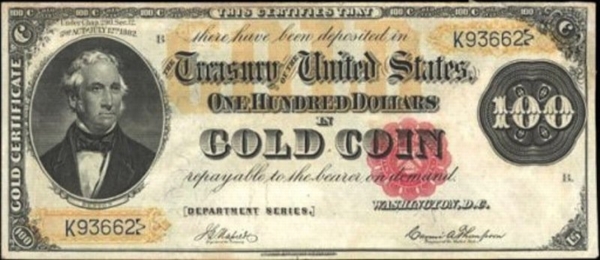 Written by Hon. C. Gayarre in 1866 and published in Debow’s Review.
Written by Hon. C. Gayarre in 1866 and published in Debow’s Review.
FAIR USE NOTICE: This site contains copyrighted material the use of which has not always been specifically authorized by the copyright owner. We are making such material available in our efforts to advance understanding of environmental, political, human rights, economic, democracy, scientific, and social justice issues, etc. We believe this constitutes a ‘fair use’ of any such copyrighted material as provided for in section 107 of the US Copyright Law. In accordance with Title 17 U. S. C. Section 107, the material on this site is distributed without profit to those who have expressed a prior interest in receiving the included information for research and educational purposes. For more information go to: http://www.law.cornell.edu/uscode/17/107.shtml


